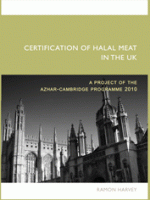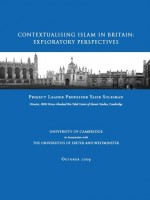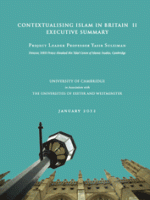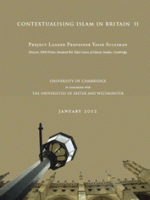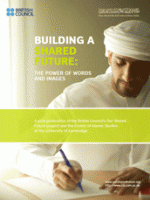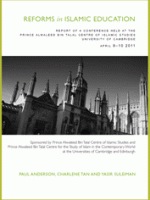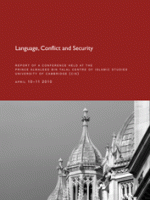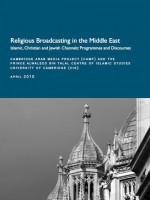Previous Fellows’ Research
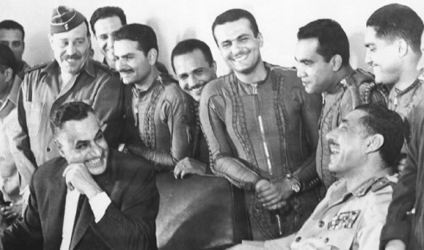 Khaled Fahmy’s current research seeks to understand how the ‘June War’ of 1967 or ‘Naksa’ (‘The Setback’) impacted on the lives of ordinary Egyptians. He is taking a larger view of the war, starting in 1967 and ending with the 1973 war, looking not only at internecine tensions among the military / political elite, but also at ordinary men and women and their experience of this six year war.
Khaled Fahmy’s current research seeks to understand how the ‘June War’ of 1967 or ‘Naksa’ (‘The Setback’) impacted on the lives of ordinary Egyptians. He is taking a larger view of the war, starting in 1967 and ending with the 1973 war, looking not only at internecine tensions among the military / political elite, but also at ordinary men and women and their experience of this six year war.
For his recent TV interview on the 1973 war see here.
The intellectual history of the Khoja diaspora
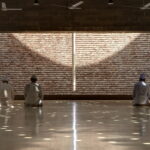 Taushif Kara’s research focuses on the intellectual history of the Khoja diaspora around the Indian ocean world. With their migration to eastern Africa in the nineteenth century as a vantage point, he situates the Khoja and their ideas within and against broader developments in African, Muslim, and Indian political thought during the colonial moment. Drawing on a range of archives, he is studying key terms of belonging, politics, and community and in doing so try to displace standard narratives of colonial knowledge and sovereignty.
Taushif Kara’s research focuses on the intellectual history of the Khoja diaspora around the Indian ocean world. With their migration to eastern Africa in the nineteenth century as a vantage point, he situates the Khoja and their ideas within and against broader developments in African, Muslim, and Indian political thought during the colonial moment. Drawing on a range of archives, he is studying key terms of belonging, politics, and community and in doing so try to displace standard narratives of colonial knowledge and sovereignty.
Manuscripts and Experience in Islamicate Societies of South Asia
Vivek Gupta will be turning his thesis (“Manuscripts and Experience in Islamicate Societies of South Asia (ca. 1450–1600)“) into a monograph, researching Bihari Qur’an manuscripts, and pursuing outreach that addresses curatorial literacy in India.
This one-year project by Emanuelle Degli Esposti, sponsored by the British Academy, is looking into the definition of ‘sectarianism’ and working towards a better definition of the intersection between different aspects of Islam.
Perspectives on End of Life Care
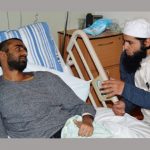 Every community has its own religio-cultural understanding of end of life, its rites, rituals and beliefs. For Muslims, nearing the end of life is considered a transition period before entering another, everlasting, life. Research has shown that the religious beliefs of clinicians and other healthcare professionals are a strong determinant in their decision-making and attitudes towards end of life care services. Many clinicians will not be of the same religion as their patient, and a lack of understanding in relation to what course of management is considered appropriate may lead to confusion, misunderstanding, unnecessary conflict, or even unseemly clinical events. This study by Mehrunisha Suleman aims to address this knowledge gap by collating and analysing the views and experiences of Muslim patients and families and those involved in their care.
Every community has its own religio-cultural understanding of end of life, its rites, rituals and beliefs. For Muslims, nearing the end of life is considered a transition period before entering another, everlasting, life. Research has shown that the religious beliefs of clinicians and other healthcare professionals are a strong determinant in their decision-making and attitudes towards end of life care services. Many clinicians will not be of the same religion as their patient, and a lack of understanding in relation to what course of management is considered appropriate may lead to confusion, misunderstanding, unnecessary conflict, or even unseemly clinical events. This study by Mehrunisha Suleman aims to address this knowledge gap by collating and analysing the views and experiences of Muslim patients and families and those involved in their care.
Fostering Ethics

This project focuses on the issue of adoption and foster care in the Muslim community. Arafat Razzaque is looking at ways in which historical perspectives on kinship and the family can contribute to an improved understanding of the challenges related to adoption in Islamic law, and towards bridging the gap between academic knowledge and social work.
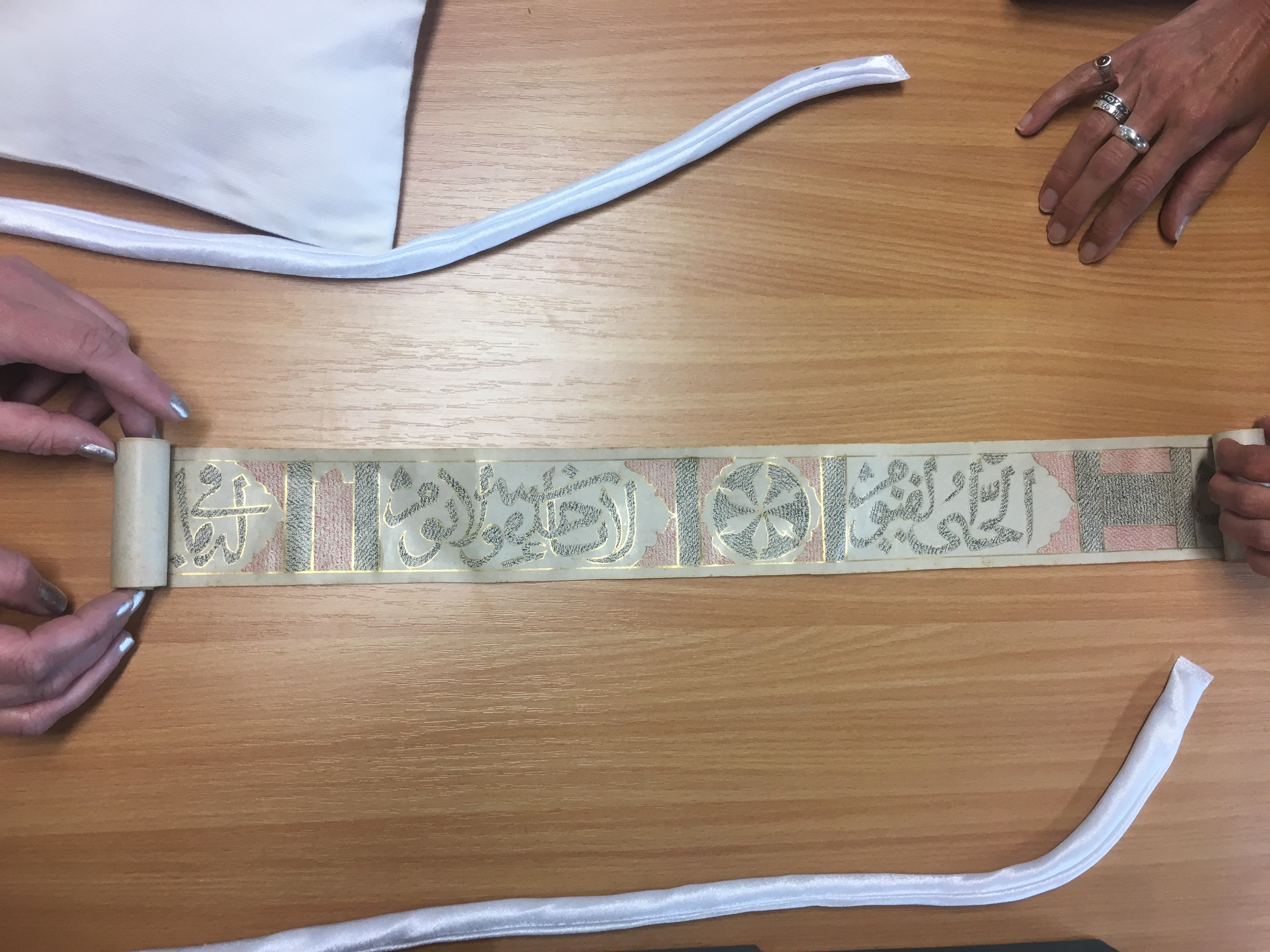 The principal drive behind Deniz Turker’s research and outreach project was to make the vast and relatively underused collection of Islamic Art within Cambridge University accessible not only to the students of the university but also to the wider Cambridge community.
The principal drive behind Deniz Turker’s research and outreach project was to make the vast and relatively underused collection of Islamic Art within Cambridge University accessible not only to the students of the university but also to the wider Cambridge community.
In the latter half of 2019, visiting fellow Ryan Williams submitted 39 recommendations to the Ministry of Justice in London and offered a training workshop to frontline probation staff based on his research on religious and racial inequality in the English Criminal Justice System. He was subsequently invited to a Ministerial Roundtable at the House of Commons in London to join frontline practitioners, voluntary sectors, and policymakers to “keep the conversation going” on inequality in the Criminal Justice System.
Reimagining Citizenship
(2016-18)
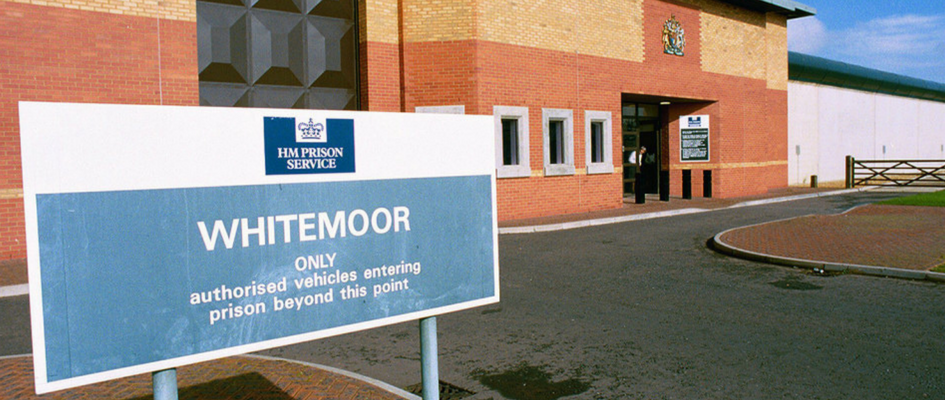 Muslim offenders’ experiences of the criminal justice system – Research into the lived experiences of citizenship among offenders and how these experiences shape individuals’ values and identities. This ground-breaking research included significant outreach into practitioners within the criminal justice system from Probation Officers to street padres. The impact that it achieved was recognised by the award of the Vice-Chancellor’s Impact Award for 2018.
Muslim offenders’ experiences of the criminal justice system – Research into the lived experiences of citizenship among offenders and how these experiences shape individuals’ values and identities. This ground-breaking research included significant outreach into practitioners within the criminal justice system from Probation Officers to street padres. The impact that it achieved was recognised by the award of the Vice-Chancellor’s Impact Award for 2018.
Narratives of Conversion to Islam: Male Perspectives
(2014-15)
This brought together forty-six male Muslim converts to discuss aspects of their conversions to Islam, to reflect on their journeys
and experiences and to produce a report to inform Muslims and non-Muslims about the topic.
Anti-Muslim Hate Crime
(2014-2015)
A qualitative research study of anti-Muslim hate crime and discrimination in England and Scotland with focus groups and interviews – exploring ‘everyday’ issues of victimization and discrimination among British Muslim communities.
Narratives of Conversion to Islam: Female Perspectives
(2013-2014)
This research brought together more than forty female Muslim converts to discuss aspects of their conversions to Islam, to reflect on their journeys and experiences and to produce a report to inform Muslims and non-Muslims about the topic. The participants reflected on the personal and social aspects of their experiences, including the impact on the individual and the family.
Listing of archived research
-
Certification of Halal Meat in the UK
This research project analyses the problems against the backdrop of the phenomenon of mass production and consumption from which they have emerged, before engaging with the UK Muslim community’s response: voluntary halal certification.
-
Contextualising Islam in Britain: Exploratory Perspectives
The overall vision of this project is to create an opportunity for different parts of the British Muslim community to come together to discuss what it means to live faithfully as a Muslim in modern Britain.
-
Contextualising Islam in Britain – Executive Summary
A series of five symposia organised by the Centre of Islamic Studies, supported by the Department of Communities and Local Government, in association with the Universities of Exeter and Westminster
-
Contextualising Islam in Britain – Phase II
A series of four symposia organised by the Centre of Islamic Studies, supported by the Department of Communities and Local Government, in association with the Universities of Exeter and Westminster
-
Building a Shared Future: An E-Book Series on Islam in the US & Europe
These e-books address four themes in public dialogue about Islam: ‘The Power of Words and Images’, ‘Citizenship and Identity’, ‘Islam, Knowledge and Innovation’, and ‘Religion, Politics and the Public Sphere’.
-
Reforms in Islamic Education
While there has been a growing field of research on reforms in Islamic education, the tendency is to view these reforms as reactions to external pressure and expectations, rather than actions initiated, contested and negotiated by and among Muslims. What is often overlooked is the need to locate these reforms within broad historical, political and socio-cultural contexts beyond the events of 9/11.
-
Language, Conflict and Security in the Middle East
Conference exploring the following themes: Security and Beyond, Language in Conflict, War of Words, Israel, Palestine, Language and Terminology, Reading between the Lines: The Other Side of Language and Conflict, Teaching Other’s Languages, Is Arabic under Attack? The conference papers and findings were made into a report which is available for free download.
-
Social Action in an Age of Austerity
This one-day workshop and networking event on September 11th invites faith-based community organisations, policy-makers and academics to discuss how communities are responding to austerity policies and economic pressures.
-
Religious Broadcasting in the Middle East
The Cambridge Arab Media Project (CAMP) and Centre of Islamic Studies has designed a research project to map out part of the ‘religious-broadcasting-scene’ in the area and explore the main contours of this broadcasting. This research has involved a team of academics and experts who have been focusing on content analysis and maps of programming of these channels. This conference is the concluding phase of the rese arch where our researchers will outline their findings on the specific channels and programmes that have been monitored and analysed.




